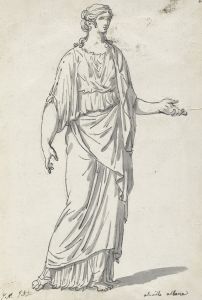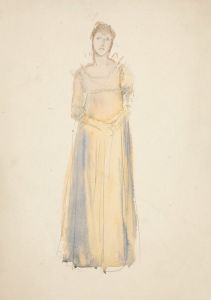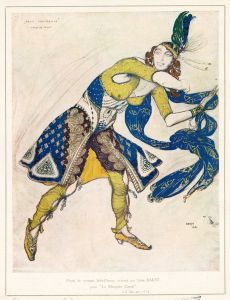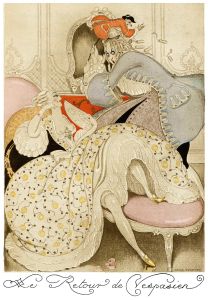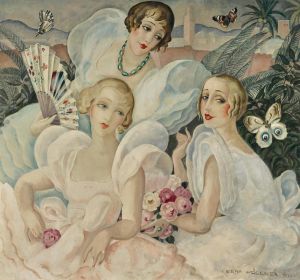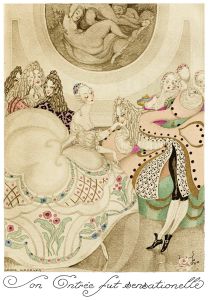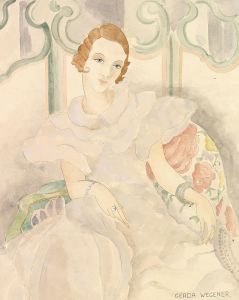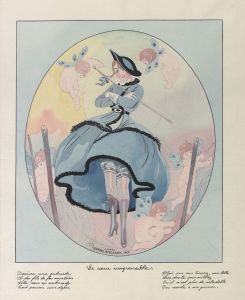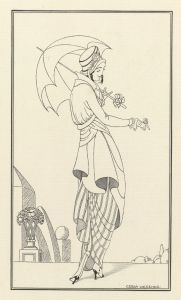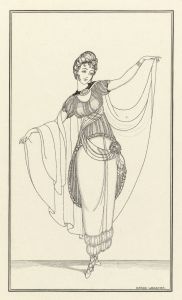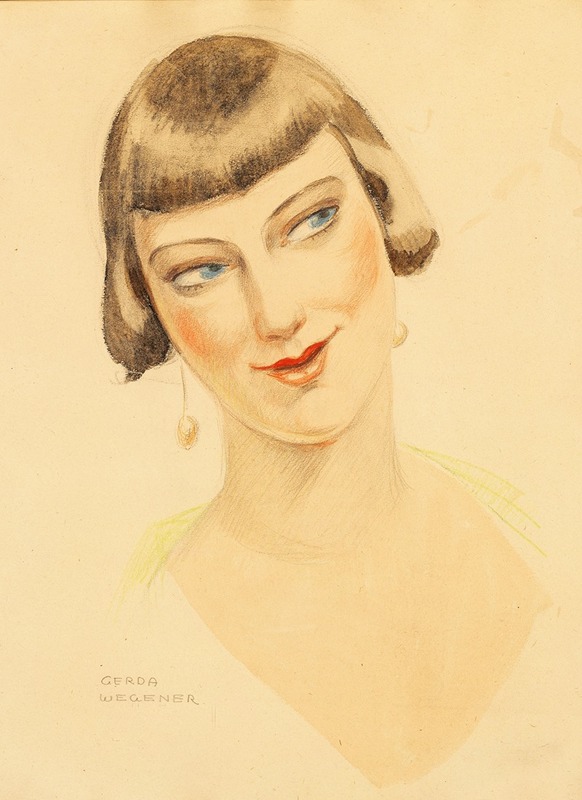
Elna Tegner
A hand-painted replica of Gerda Wegener’s masterpiece Elna Tegner, meticulously crafted by professional artists to capture the true essence of the original. Each piece is created with museum-quality canvas and rare mineral pigments, carefully painted by experienced artists with delicate brushstrokes and rich, layered colors to perfectly recreate the texture of the original artwork. Unlike machine-printed reproductions, this hand-painted version brings the painting to life, infused with the artist’s emotions and skill in every stroke. Whether for personal collection or home decoration, it instantly elevates the artistic atmosphere of any space.
Gerda Wegener was a Danish painter and illustrator known for her vibrant and often provocative works that challenged the norms of her time. One of her notable paintings is "Elna Tegner," which exemplifies her distinctive style and thematic focus. Wegener was born on March 15, 1886, in the coastal town of Hammelev, Denmark. She studied at the Royal Danish Academy of Fine Arts in Copenhagen, where she honed her skills and developed her unique artistic voice.
Wegener's work is often associated with the Art Nouveau and Art Deco movements, characterized by their decorative style and emphasis on elegance and modernity. Her paintings frequently featured strong, confident women, often depicted in fashionable attire and engaging in activities that were considered unconventional for women at the time. This focus on female empowerment and gender fluidity was a hallmark of Wegener's work, reflecting her progressive views on gender and sexuality.
"Elna Tegner" is a portrait that captures the essence of Wegener's artistic approach. The painting showcases her mastery of color and form, with a keen attention to detail that brings the subject to life. Wegener's use of bold lines and vibrant colors creates a dynamic composition that draws the viewer's eye and invites them to explore the nuances of the subject's expression and attire.
Elna Tegner, the subject of the painting, was a contemporary of Wegener, and the portrait reflects the social and cultural milieu of early 20th-century Europe. Wegener's ability to capture the personality and essence of her subjects is evident in this work, as she portrays Tegner with a sense of individuality and presence that transcends the canvas.
Wegener's career was marked by both acclaim and controversy. Her work was celebrated for its technical skill and innovative style, but it also faced criticism for its provocative themes and depictions of gender and sexuality. Despite this, Wegener remained a prominent figure in the art world, exhibiting her work in galleries and salons across Europe.
In addition to her paintings, Wegener was also a successful illustrator, contributing to various fashion magazines and publications. Her illustrations often mirrored the themes of her paintings, featuring strong, independent women in fashionable settings. This dual career as a painter and illustrator allowed Wegener to reach a broad audience and solidify her place in the art world.
Wegener's personal life was as unconventional as her art. She was married to fellow artist Einar Wegener, who later became known as Lili Elbe, one of the first recipients of gender confirmation surgery. Their relationship and Elbe's transition were the subject of the 2015 film "The Danish Girl," which brought renewed attention to Wegener's life and work.
Today, Gerda Wegener is recognized as a pioneering artist who challenged societal norms and pushed the boundaries of art and gender. Her work, including "Elna Tegner," continues to be celebrated for its boldness, beauty, and relevance to contemporary discussions on gender and identity. Wegener's legacy endures as a testament to her talent and her courage in expressing her unique vision of the world.





